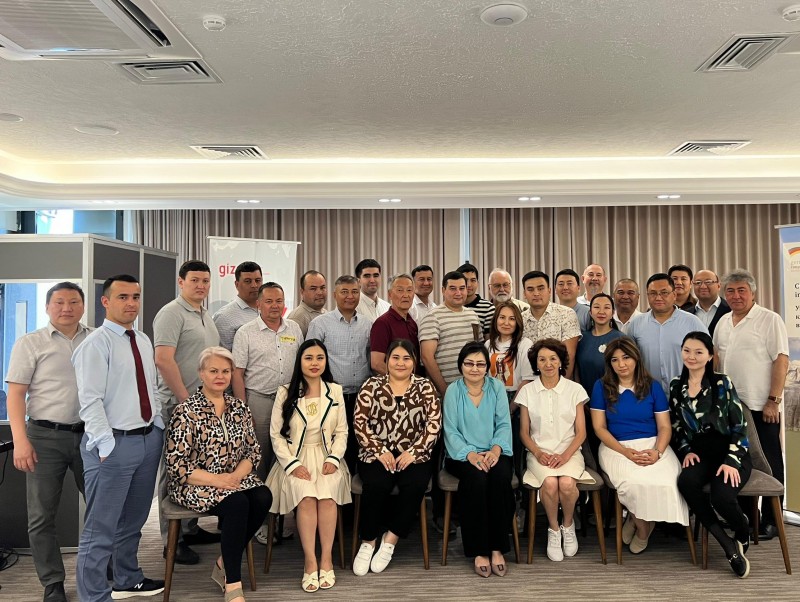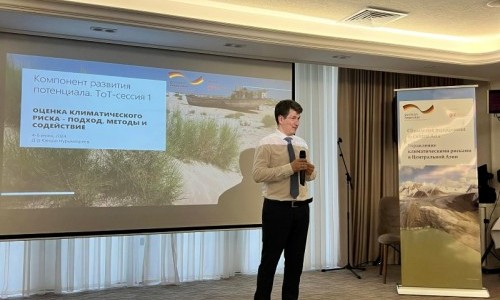
Over the course of three days in Tashkent, employees from governmental and public organizations from five Central Asian countries participated in a training session on climate risk assessment and mitigation actions. This training for trainers was organized as part of the "Climate Risk Management in Central Asia" project, implemented in the region by the German Society for International Cooperation (GIZ). The project focuses primarily on floods and droughts but also addresses extreme weather events such as heatwaves, hail, and hurricanes, as well as slow-onset processes like water supply deterioration, land degradation, and biodiversity loss.
In Kyrgyzstan, the "CAMP Alatoo" Foundation has been working on the project since last year, carrying out a component that involves climate risk analysis. Based on this analysis, adaptive measures will be developed, and the capacity of personnel in managing transboundary water basins in the Kadamjay district of Batken region and the Kemin district of Chui region will be enhanced.
The recent training aimed to develop instructors' skills in designing measures and integrating them into river basin management and climate adaptation plans. In the future, these trainers will support the project's sustainability throughout the region. Therefore, specialists must have a clear understanding of the entire climate risk assessment process (comprising six stages), be able to create realistic scenarios, and convey all this knowledge to various audiences—from decision-makers to local communities.
Participants were introduced to methods for rapid assessment and analysis of climate risks, with a focus on floods and droughts. The module covered past and future climate conditions, identification of hazardous events, qualitative and quantitative risk assessments, consideration of risk tolerance, socio-economic factors, links between climate and natural resources, and the concept of residual risk. The training also included activities to identify vulnerabilities in the natural, social, and economic environments and map climate impacts. Special attention was given to the transboundary aspects of risk assessment, such as overcoming potential barriers, data sharing, and analyzing transboundary impacts.
The training in Tashkent launched a series of educational events. Participants will attend three more seminars, where they will have the opportunity to expand their theoretical knowledge and develop practical skills.


Итоги пастбищного сезона 2018 года были подведены на очередном заседании районной пастбищной комиссии (РПК).
MoreThe development of the unified method, "Monitoring Pastures at the Local Level," is nearing completion.
MoreЧетыре новых моста построены в 2018 году в Кыргызстане при поддержке ОФ “CAMP Алатоо” и Швейцарской ассоциации “Памирские...
More